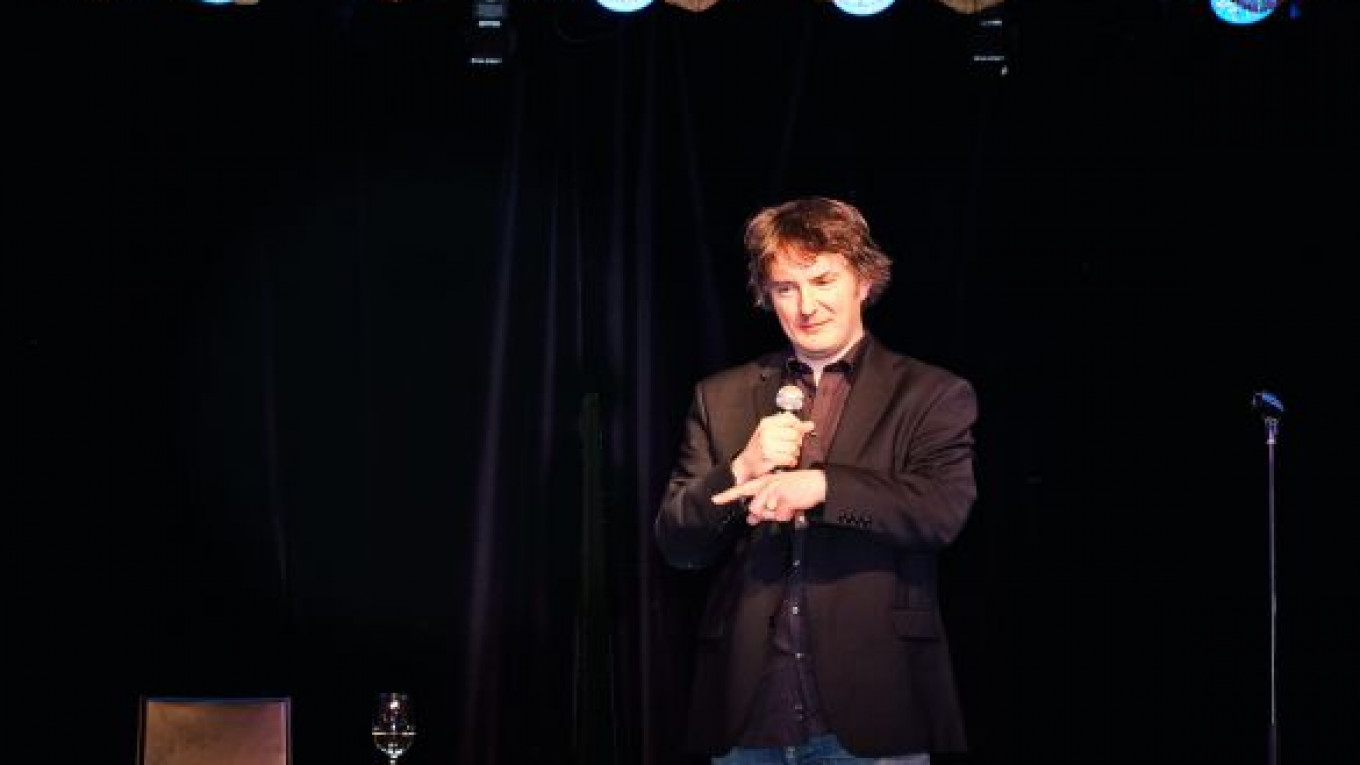ST. PETERSBURG — Irish comedian and actor Dylan Moran, became the first high-profile English-speaking comedian to perform stand-up in Russia last week with two shows in St. Petersburg.
Moran's performances on Thursday and Saturday evenings at Chaplin Hall were part of a joint experiment organized by two comedians from the TV show "Comedy Club" and British agency Just for Laughs Live.
Russian comedy shows remain a very different beast from those seen in Britain and the United States, often more staid and less mobile, although "Comedy Club's" television success in recent years has sparked a growth in stand-up nights.
"Hopefully this will open the door to bringing Russian comedians over to the U.K., to broaden our horizons even further," said Nick Handford, a spokesman for Just for Laughs Live. He said comedians were interested in taking part because "Russian stand-up is such a learning experience that it is immediately interesting for anybody coming here."
Moran, 40, is one the best-known stand-ups in Britain, winning the Perrier comedy award at the Edinburgh festival when he was only 24. He is also known for playing the heavy-drinking nihilistic shop owner in "Black Books," a popular television comedy series.
"I may have built up in my head the differences between East and West and thought, 'I must find out what works here' just because I don't know it," Moran said in an interview before his second show. "I didn't want to go on and be talking to myself; I wanted to be talking to people about the reality of their lives," he added.
He didn't avoid controversial subjects such as the city's new law banning "homosexual propaganda" to imprisoned oil tycoon Mikhail Khodorkovsky and was well received, but the language barrier often proved insurmountable.
His act was simultaneously translated through earphones to the non-English-speaking portion of the audience, but at one point, having got tied up while explaining that a hat box is a box of hats, he exclaimed, "I don't know why I'm repeating myself thinking it will be any clearer!"
One difficulty, Moran said was that while in the West people laugh out loud, Russians tended to clap as a sign of approval. "Russian people obviously laugh through their hands. I wonder, do you also cry through your knees?" he joked.
At the end, the cultural differences seemed too much for the comedian and he ended, visibly disappointed, telling his audience that they seemed to have become "disconnected."
"We just wanted to see whether it would work. You can't have everything you want, and it might not be the best gig, but that's not the point" said Moran, after the gig, "The point is just: Can we make this work somehow? We're at that stage, you know, very early days in the lab."
The lab work will continue, organizers say, with more Western comedians set to come to Russia.
A Message from The Moscow Times:
Dear readers,
We are facing unprecedented challenges. Russia's Prosecutor General's Office has designated The Moscow Times as an "undesirable" organization, criminalizing our work and putting our staff at risk of prosecution. This follows our earlier unjust labeling as a "foreign agent."
These actions are direct attempts to silence independent journalism in Russia. The authorities claim our work "discredits the decisions of the Russian leadership." We see things differently: we strive to provide accurate, unbiased reporting on Russia.
We, the journalists of The Moscow Times, refuse to be silenced. But to continue our work, we need your help.
Your support, no matter how small, makes a world of difference. If you can, please support us monthly starting from just $2. It's quick to set up, and every contribution makes a significant impact.
By supporting The Moscow Times, you're defending open, independent journalism in the face of repression. Thank you for standing with us.
Remind me later.






